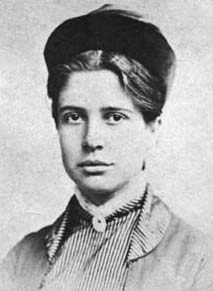Florence Kelley
| Florence Kelley | |
|---|---|
 |
|
| Born |
September 12, 1859 Philadelphia, Pennsylvania |
| Died | February 17, 1932 (aged 72) Philadelphia, Pennsylvania |
| Occupation | American social reformer |
| Spouse(s) | Lazare Wischnewetzky |
| Parent(s) | William D. Kelley and Caroline Bartram-Bonsall |
Florence Kelley (September 12, 1859 – February 17, 1932) was a social and political reformer. Her work against sweatshops, and for the minimum wage, eight-hour workdays, and children's rights is widely regarded today. From its founding in 1899, Kelley served as the first general secretary of the National Consumers League. In 1909, Kelley helped create the National Association for the Advancement of Colored People (NAACP). Kelley studied at Cornell University.
Florence was the daughter of William D. Kelley (1814–1890) of Philadelphia. He was the son of Hannah and David Kelley. He was a self-made man who become an abolitionist, a founder of the Republican party, a judge, and a longtime member of the United States House of Representatives.
Florence had two brothers and five sisters; all five sisters died in childhood. Three of the sisters were Josephine Bartram Kelley, Caroline Lincoln Kelley, and Anna Caroline Kelley. Josephine died at the age of 10 months. Caroline died at the age of four months. Anna died at six years of age.
Florence Kelley was an early supporter of women's suffrage after her sisters died and worked for numerous political and social reforms, including the NAACP (which Florence helped found). In Zurich, she met various European socialists including Polish-Russian medical student Lazare Wischnewetzky, whom she married in 1884 and had three children with (the couple divorced in 1891).
She is known for her translation of Die Lage der arbeitenden Klasse in England, written in 1844 by Friedrich Engels, with whom she corresponded. As The Condition of the Working Class in England in 1844, it has been in print ever since. She appears there as 'Mrs. F. Kelley Wischnewetzky' and was also known as Florence Kelley.
...
Wikipedia
